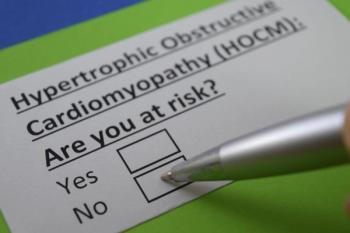
Women With HIV and Persistent Depression May Experience Greater Risk for Heart Disease
A new study found increased plaque buildup levels in women with HIV who also suffered from persistent depression and stress.
A study published in the Journal of the American Heart Association discovered that women living with HIV (WLWH) who have persistent levels of depression may exhibit a greater risk of heart disease.1
The goal of the study was to identify reasons for why women with HIV tend to have increased atherosclerotic risk, the risk of plaque building up in arteries, which is a key contributor to heart attacks and strokes.1
The study consisted of data collected from a sample of 700 women from a sub-study of the Women’s Interagency HIV study. Participants were divided into 2 latent classes for determining their psychosocial risk: high and low. Of the 700 women, 163 were identified as having high psychosocial risk, and 637 as having low psychosocial risk. The prevalence of depression, high stress, and probably post-traumatic stress disorder was also evaluated.1
Compared with HIV-negative women, who respectively held 9% for plaque prevalence for both high and low psychosocial risk classes, WLWH had a plaque prevalence of 23% and 11% in their high and low psychosocial risk classes. The prevalence of plaque continued to build as symptoms of depression persisted.1
Matthew Levy, lead investigator of the study and a research scientist in the epidemiological department at the Milken Institute School of Public Health at George Washington University in Washington, DC, said that previous studies had already found that women and men with HIV were at higher risk for heart disease, regardless of whether they exhibited high levels of depression or stress. “What our results show is that mental health factors may be further contributing to this risk,” he said.2
Levy also suggested that HIV care providers screen patients for symptoms of depression and stress.2
Dr Matthew Feinstein, a cardiologist and assistant professor of medicine at Northwestern University’s Feinberg School of Medicine in Chicago, concurred. “What this study tells us to do is consider the whole patient, consider the broader social context in which the patient exists. We have to ensure patients get all the support that they need, not just medically.”2
The study concluded that while the psychosocial factors chosen were independent atherosclerotic risk factors among WLWH, they still supported furthering research into developing interventions for depression and stress in order to potentially mitigate and treat the increased risk.1
References
- Levy ME, Anastos K, Levine SR, et al. Depression and psychosocial stress are associated with subclinical carotid atherosclerosis among women living with HIV. Journal of the American Heart Association. 2020.
https://doi.org/10.1161/JAHA.120.016425 - American Heart Association News. Persistent Depression might increase heart disease risk for women with HIV. News Release. American Heart Association; June 22, 2020. Accessed June 30, 2020.
https://www.heart.org/en/news/2020/06/22/persistent-depression-might-increase-heart-disease-risk-for-women-with-hiv
Newsletter
Pharmacy practice is always changing. Stay ahead of the curve with the Drug Topics newsletter and get the latest drug information, industry trends, and patient care tips.























